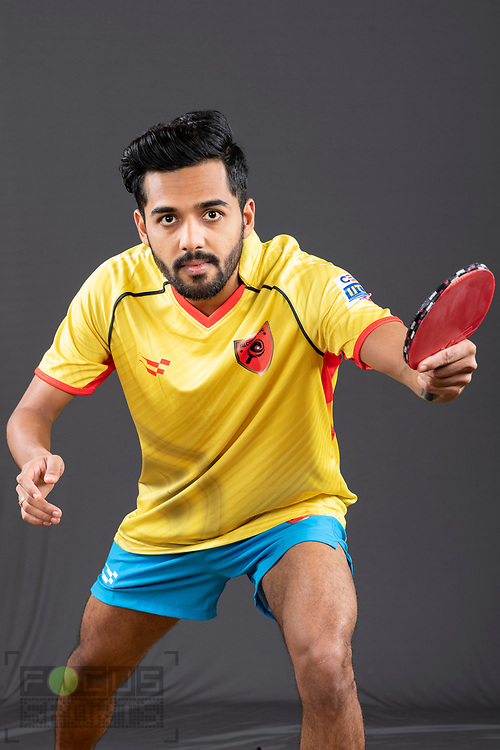Sanil Shetty is a people person. The left-handed looper reached world #64 in 2018. He is now listed at #247, good enough for #7 in India. The 30-year-old is on the short list of Indian men to bag a national title in the Sharath Kamal Achanta era, the all-time leader with nine and counting. Accolades aside, Shetty is lucky simply to be alive. "He was a premature baby," says Sanil's brother Sachin Shetty, adding that his younger sibling experienced "a lot of medical problems." "I had a hole in my heart," confirmed Sanil. "The doctors said I have less than one year to live... I wasn't able to walk two steps." As Sanil grew, however, he grew stronger. "By the time he was 5 or 6," recalls Sanil's father Shankar Shetty, "Sanil was running and jumping, and breathing became easier as well." One day, Sanil's older brother Sachin came home with something from a table tennis tournament which changed both of their lives. "I saw my brother," recalls Sanil. "He had got a big trophy. There were stars in my eyes." Soon, Sanil joined Sachin in taking table tennis lessons. While both brothers showed promise, the younger Sanil eventually showed greater potential. Seeing the financial strain the lessons put on his family, Sachin took one for the team. "I chose that my brother should get all the facilities," recalled Sachin. "Because he had better talent and better ability, I felt that he should go to the next level." "He had a discussion with my mom and dad," corroborates Sanil, "He said, 'I will stop playing and start with coaching so I can support him more.'" Sachin's selfless sacrifice, coupled with Sanil's skill and hard work, paid off. In 2013, Sanil was crowned India's men's singles champion. He has also gone on to win two gold medals for India in the Commonwealth Games. "Whatever medal I win, it goes to him," says Sanil. "I dedicate it to him, my brother." While Sanil's family gave him the support he needed to get his career off the ground, all international table tennis competition has now been grounded due to the COVID-19 pandemic. Shetty describes the gradual resumption of play in Germany, observing new health protocols and in eerie, echoing silence without a single fan on hand. "It's just one room and you're put inside it to play," describes Shetty. "Sports is full of emotions so without the audience it will be boring. Players get their energy from the audience at times." Such a Spartan setting would be in stark contrast to the atmosphere in India's Ultimate Table Tennis league, where Shetty regularly thrilled fans as a member of the RP-SG Mavericks Kolkata. "I think that will be missing, the extra effort that you put for the audience," he elaborates. Another social element of the game lost in the "new normal" is doubles competition. The ITTF has scrapped all tandem teamwork for at least the remainder of 2020. Mixed doubles was due to debut at the The Tokyo Olympics, but this too is now in doubt. "They were working so hard for mixed doubles and suddenly now you're saying it will not happen at all," laments Shetty. "So somewhere down the line, it is demotivating for the players." While he misses the social aspects of competition, Shetty understands that everyone must make sacrifices in order to survive the worst health crisis of our time. "There's nothing you can do," he accepts. "They are also thinking for the players that they should be safe." Clearly, Shetty has a strong emotional connection with table tennis fans. For him, this time of forced isolation must be especially difficult, as if he again has a hole in his heart. As before, through patience and persistence, he will overcome it.
More at News18.com
